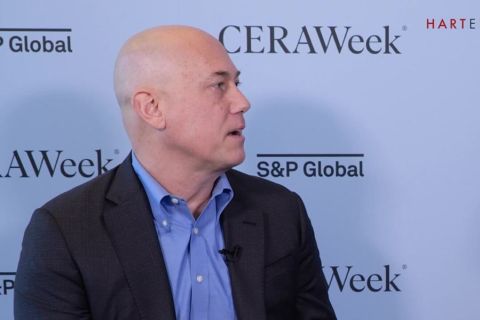California Governor Gavin Newsom on Oct. 21 unveiled a plan to ban new permitting of oil wells within 3,200 ft (975 m) of communities, calling it a move that will both protect public health and further the state’s goals to combat climate change.
The move is a win for state environmental justice advocates that have long lobbied for stricter regulations around installing oil and gas operations near places where people live.
Studies have linked communities’ proximity to oil and gas developments with higher rates of asthma, birth defects and heart disease, state officials said.
If finalized, the rules would be the most stringent of any state in the nation, topping Colorado’s 2,000-ft (610-m) setback requirement approved last year.
The proposal would not close existing operations but would impose new pollution controls on wells currently within 3,200 ft (975 m) of homes, schools, hospitals and other facilities.
Newsom announced the proposal at a news conference in the Los Angeles-area neighborhood of Wilmington, a primarily Latino community that is adjacent to a major oil field.
“I know for many this has been a long and frustrating and arduous journey,” Newsom said, noting that 2 million Californians live within half a mile (805 m) of an oil drilling site.
He also said the proposal fits in with California’s goal of weaning its economy off of fossil fuels.
“We don’t see oil in our future,” he said.
Western States Petroleum Association President Catherine Reheis-Boyd said in an emailed statement that the proposal would "eliminate tax revenues and community benefits, raise costs for everyone and put thousands of people out of work."
Legislative efforts aimed at requiring setbacks between oil and gas operations and communities failed in California in recent years, prompting Newsom in 2019 to direct the state’s oil and gas regulator to strengthen regulations around oil and gas activities near homes, schools, hospitals and parks.
“Governor Newsom and his administration [are] now listening to the front-line communities and health professionals who have borne the burden of proving they have been harmed by oil extraction,” Martha Dina Arguello, executive director of Physicians for Social Responsibility-Los Angeles, said in a statement.
The proposed rule was published by the California Department of Conservation’s Geologic Energy Management Division, the state agency that regulates oil and gas operations. The agency will accept public comments on the draft for 60 days, and it will then undergo an economic analysis and refinement before it can be finalized.
Recommended Reading
Defeating the ‘Four Horseman’ of Flow Assurance
2024-04-18 - Service companies combine processes and techniques to mitigate the impact of paraffin, asphaltenes, hydrates and scale on production — and keep the cash flowing.
Tech Trends: AI Increasing Data Center Demand for Energy
2024-04-16 - In this month’s Tech Trends, new technologies equipped with artificial intelligence take the forefront, as they assist with safety and seismic fault detection. Also, independent contractor Stena Drilling begins upgrades for their Evolution drillship.
AVEVA: Immersive Tech, Augmented Reality and What’s New in the Cloud
2024-04-15 - Rob McGreevy, AVEVA’s chief product officer, talks about technology advancements that give employees on the job training without any of the risks.
Lift-off: How AI is Boosting Field and Employee Productivity
2024-04-12 - From data extraction to well optimization, the oil and gas industry embraces AI.
AI Poised to Break Out of its Oilfield Niche
2024-04-11 - At the AI in Oil & Gas Conference in Houston, experts talked up the benefits artificial intelligence can provide to the downstream, midstream and upstream sectors, while assuring the audience humans will still run the show.





